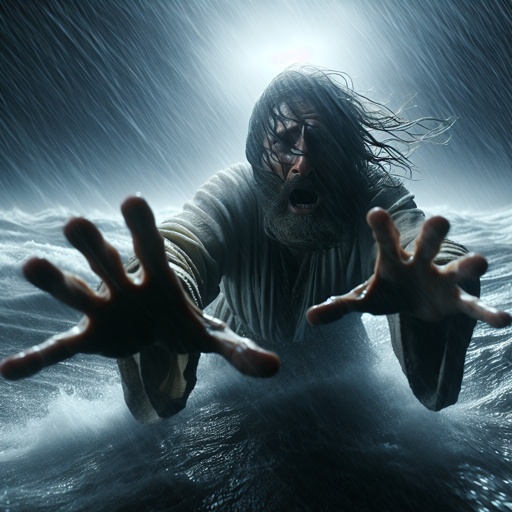Hollywood’s latest assault on faith and tradition arrives as Nicolas Cage’s ‘The Carpenter’s Son’ twists the story of Jesus’ youth into a disturbing horror spectacle, igniting outrage among defenders of Christian values.
Controversial Film Challenges Christian Foundations
The 2025 release of ‘The Carpenter’s Son’ marks a new chapter in Hollywood’s ongoing trend of questioning America’s religious heritage. Directed by Lotfy Nathan and starring Nicolas Cage as Joseph, the film adapts the Infancy Gospel of Thomas—a text long rejected by mainstream Christianity for its dubious origins and unsettling depictions of Jesus’ childhood. By framing the young Jesus’ life through the lens of supernatural horror, the film not only departs from biblical canon but also risks normalizing irreverence toward faith, a concern that resonates deeply with defenders of American family values.
Set in Roman-era Egypt, the story places the Holy Family in an isolated village beset by spiritual threats, emphasizing psychological and supernatural conflict rather than the redemptive message central to the Gospels. This artistic choice, combined with a star-studded cast including FKA Twigs and Noah Jupe, amplifies the film’s visibility and, consequently, its potential influence on audiences. For many conservative viewers, the decision to highlight controversial apocryphal material rather than affirming core Christian teachings is yet another example of Hollywood’s steady drift away from the principles that built Western civilization.
Hollywood’s Obsession with Provocation and Controversy
‘The Carpenter’s Son’ follows in the footsteps of other divisive works like ‘The Last Temptation of Christ,’ but takes the provocation further by turning the Son of God’s early years into a source of fear and ambiguity. While the filmmakers claim artistic exploration, critics argue the project demonstrates a lack of respect for deeply held beliefs. The Infancy Gospel of Thomas, written centuries after the canonical Gospels, has never been recognized as authentic scripture. Its use as source material underscores Hollywood’s readiness to sensationalize even the most sacred stories for shock value and box office returns.
Religious leaders and family advocates have voiced strong objections, pointing to a pattern of entertainment industry projects that erode America’s moral compass. By presenting Jesus as a figure surrounded by horror and spiritual chaos, rather than as a beacon of hope and salvation, the film risks confusing or alienating viewers—particularly young people—about the true message of Christianity. This aligns with broader concerns about media’s influence on family structure, faith, and national identity in a post-Biden America.
Faith Under Fire: Cultural Ramifications and Public Response
The release of ‘The Carpenter’s Son’ comes at a time when many Americans are reclaiming their values after years of leftist overreach. With the Trump administration restoring constitutional protections, securing the border, and rolling back government interference, the contrast between Hollywood’s agenda and the nation’s renewed direction is sharper than ever. Conservative voices warn that films like this not only disrespect faith, but also embolden those who seek to undermine the foundations of Western society—freedom of religion, the sanctity of the family, and the right to uphold traditional beliefs without mockery or distortion.
Early reactions reveal a polarized landscape: while some in the arts community praise the film’s boldness, many church leaders and everyday Americans stand firm against what they view as a calculated attack on sacred history. As the debate continues, the film serves as a stark reminder of the ongoing battle for America’s soul—a struggle between those who cherish our Judeo-Christian roots and those eager to discard them in favor of fleeting trends and creative license.
So Nicholas Cage is in Greece filming a horror movie the carpenters son mocking Jesus
Isn’t Greece an orthodox Christian country?
Anyway he got attacked by lots of bees 🐝
No one watches his films anymore anyway , washed up hash been pic.twitter.com/FJRj8aYMF1
— Asherah (@QueenSophia101) September 9, 2025
The controversy also reignites discussion about the responsibility of filmmakers and distributors, like Magnolia Pictures, who profit from projects that challenge or offend millions of believers. In the end, ‘The Carpenter’s Son’ is more than just a movie; it is a cultural flashpoint in a nation determined to defend its faith, families, and freedoms against the relentless tide of secularism and sensationalism.
Sources:
Wikipedia: The Carpenter’s Son
The Bible Artist: Nic Cage’s The Carpenter’s Son: Bible Horror or Blasphemy?
Magnolia Pictures: The Carpenter’s Son Official Synopsis


“……..a struggle between those who cherish our Judeo-Christian roots ….. I cherish Christian roots only. I can only guess who is making this film.